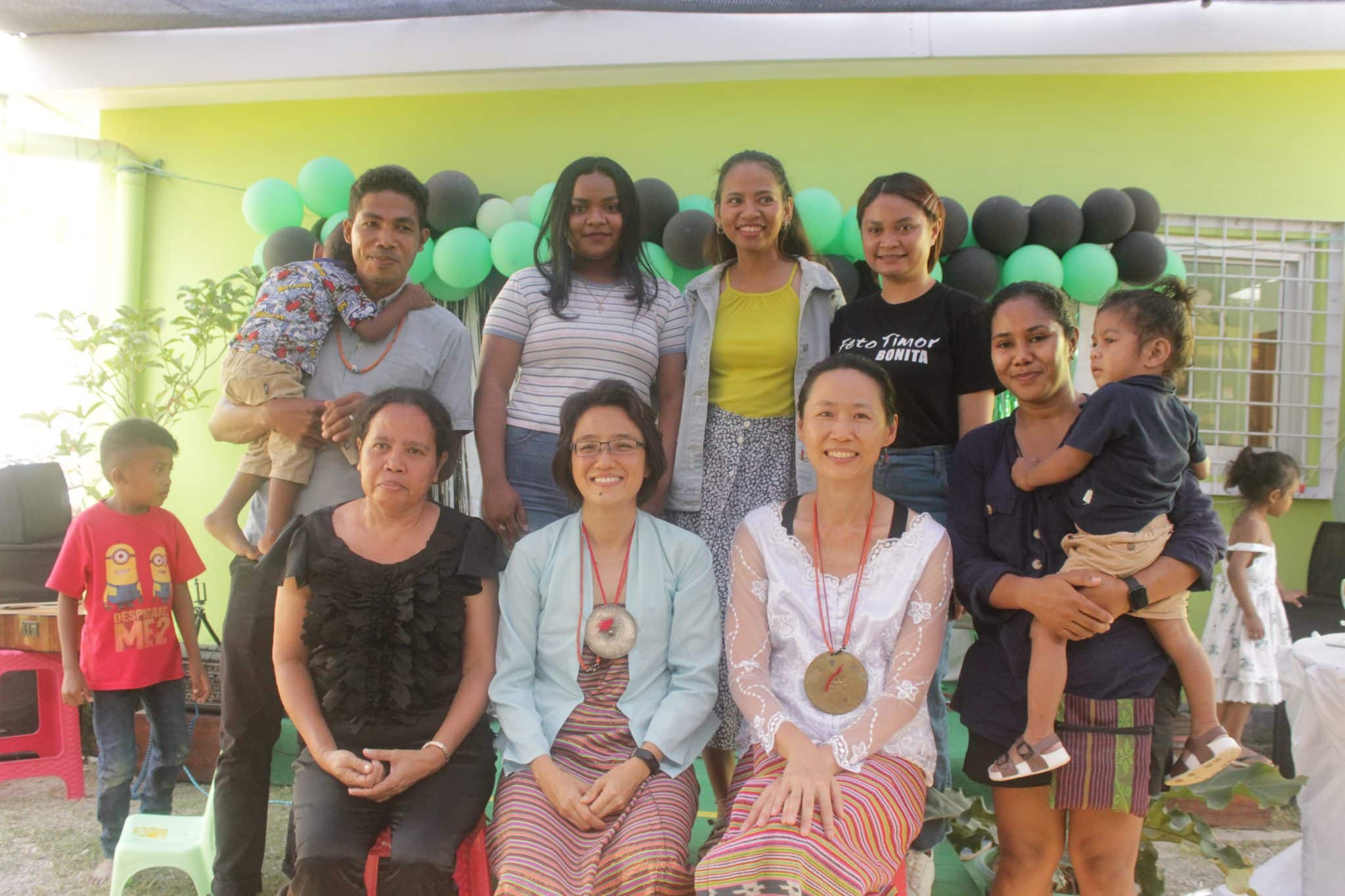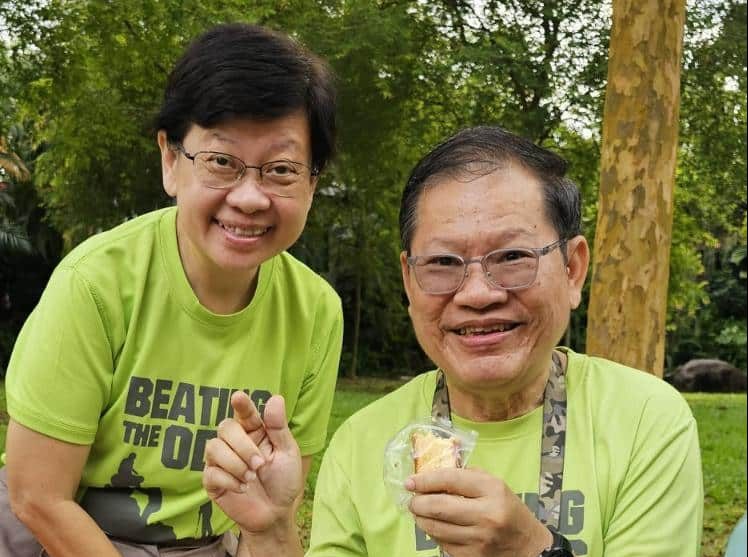“I was hungry to do something for God”: So he went from comfort to disaster zone
by Karen Tan // August 30, 2018, 3:00 pm
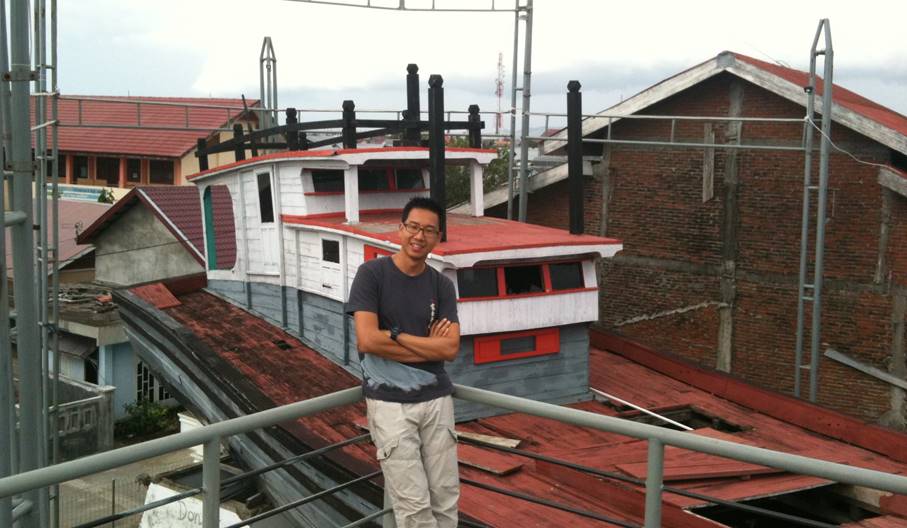
Eu Lee returned in 2015 to Layeun, Aceh, a fishing community he helped re-build over seven years from 2005. All pictures by Chng Eu Lee.
Obedience to a stir in the heart can be a strong motivational force.
Add to that a dash of Christ’s love and a helping of compassion, and the mix presents a life that is primed and ready to be used by God.
“I was hungry to do something for God.”
That was Chng Eu Lee’s response to the stirring in his heart when the region was ravaged by the 2004 Indian Ocean earthquake and tsunami near Indonesia.
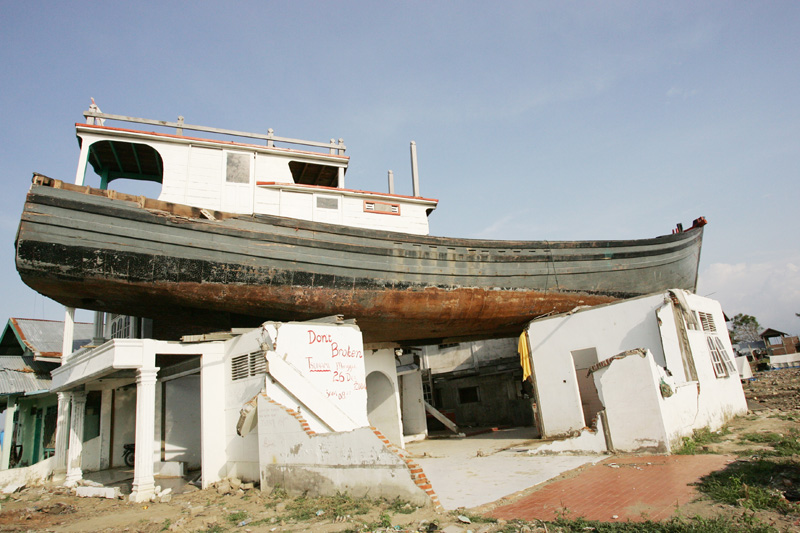
Boats washed ashore by the tsunami destroyed many homes in Aceh, Indonesia, 2005.
The 2004 Indian Ocean earthquake is the third-largest ever recorded on a seismograph. The plight of the affected people and countries prompted a worldwide wave of humanitarian response.
“At Aceh, I found my calling straight away.”
About 230,000 people were killed, tens of thousands more were injured, and 1.7 million were made homeless.
Five months after that fateful Boxing Day, Chng went with his missions pastor to Indonesia, looking to serve a displaced people and re-build a community in the disaster zone. From then on, there was no turning back.
“At Aceh, I found my calling straight away.”
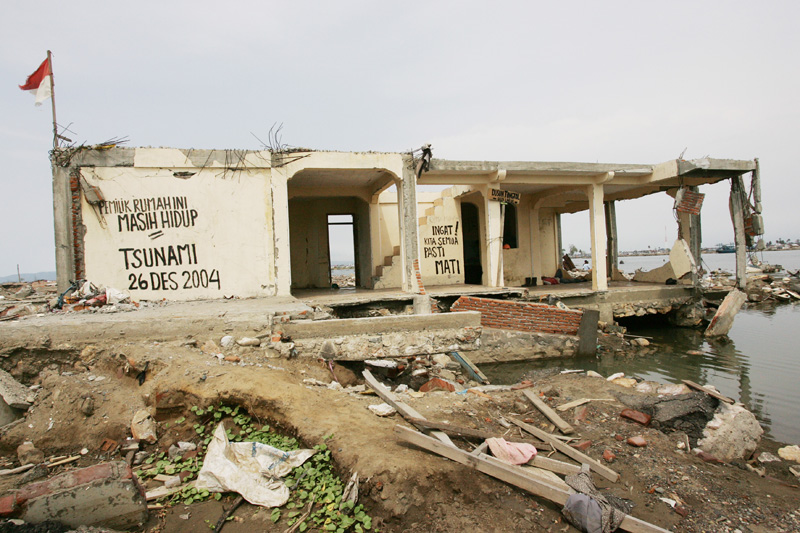
The epicentre of the 9.0 magnitude quake was located in the Indian Ocean near the west coast of Sumatra, leaving much of Aceh in ruins.
Resolute about throwing in his lot with the Achenese community, Chng put his life on hold temporarily for Layeun, a fishing village south of the capital city of Banda Aceh.
For the fresh-faced 31-year-old who had just quit his engineering job and was dabbling in photography on the sidelines, it was a step beyond comfort zone.
“I had thought missions was for the select few, but every day we are all walking in our mission field.”
“People talk about how not to be a Sunday Christian. That was me.
“I grew up compartmentalising my life – Sunday you go to church and on any other day, you are somebody else entirely. And I had thought missions was for the select few and missed the point that we are all in missions. Every day, we are walking in our mission field.”
After an initial two months living in the village, Chng spent the next seven years as an itinerant missionary. He was a frequent visitor, flying to Indonesia every month where he spent up to a couple of weeks at a time. Eventually, as the work was established, his stays tapered off to several days a month.
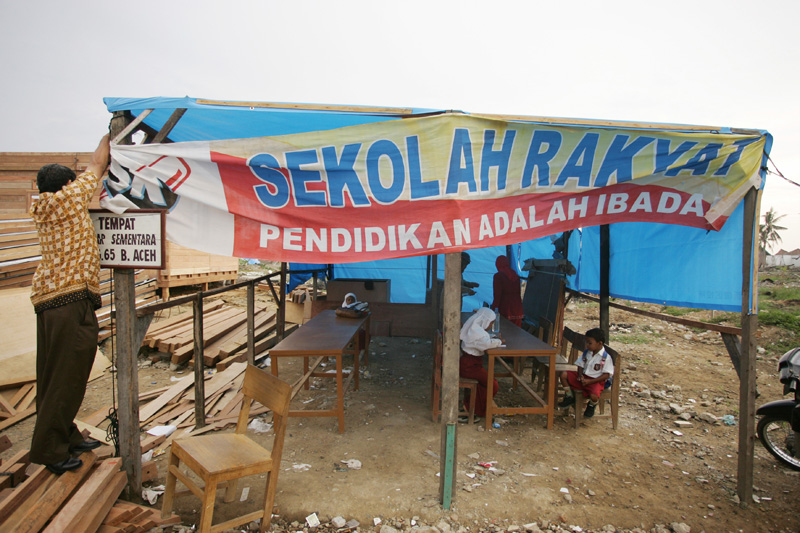
The locals setting up temporary shelters for schools, in order to add a touch of normality to a life disrupted.
While Chng was not at liberty to share faith outright, his commitment to the community reflected God’s love, from building relationships to rebuilding the shattered community.
“Church planting was not the focus, given the cultural context and the religious sensitivity but rather to demonstrate the love of Christ. It was about being a strong witness for Christ. We went as Christians and would talk to the people about the faith that motivates the works.”
Worth and dignity
Generally, many secular organisations take the top-down approach by providing aid they believe befits the community. Chng and his team took a different tack in their community building programmes.
They first spent time getting to know the villagers and their needs, then they invited engagement and participation, allowing the beneficiaries to take ownership of the work.
“As Christians, we wanted to follow in the footsteps of Jesus to transform society, bearing Christian witness and doing justice,” said Chng.
“By getting the villagers to participate in their own development, the locals were no longer just recipients of aid. We strengthen their worth and dignity. That’s the distinction we bring to the table.”
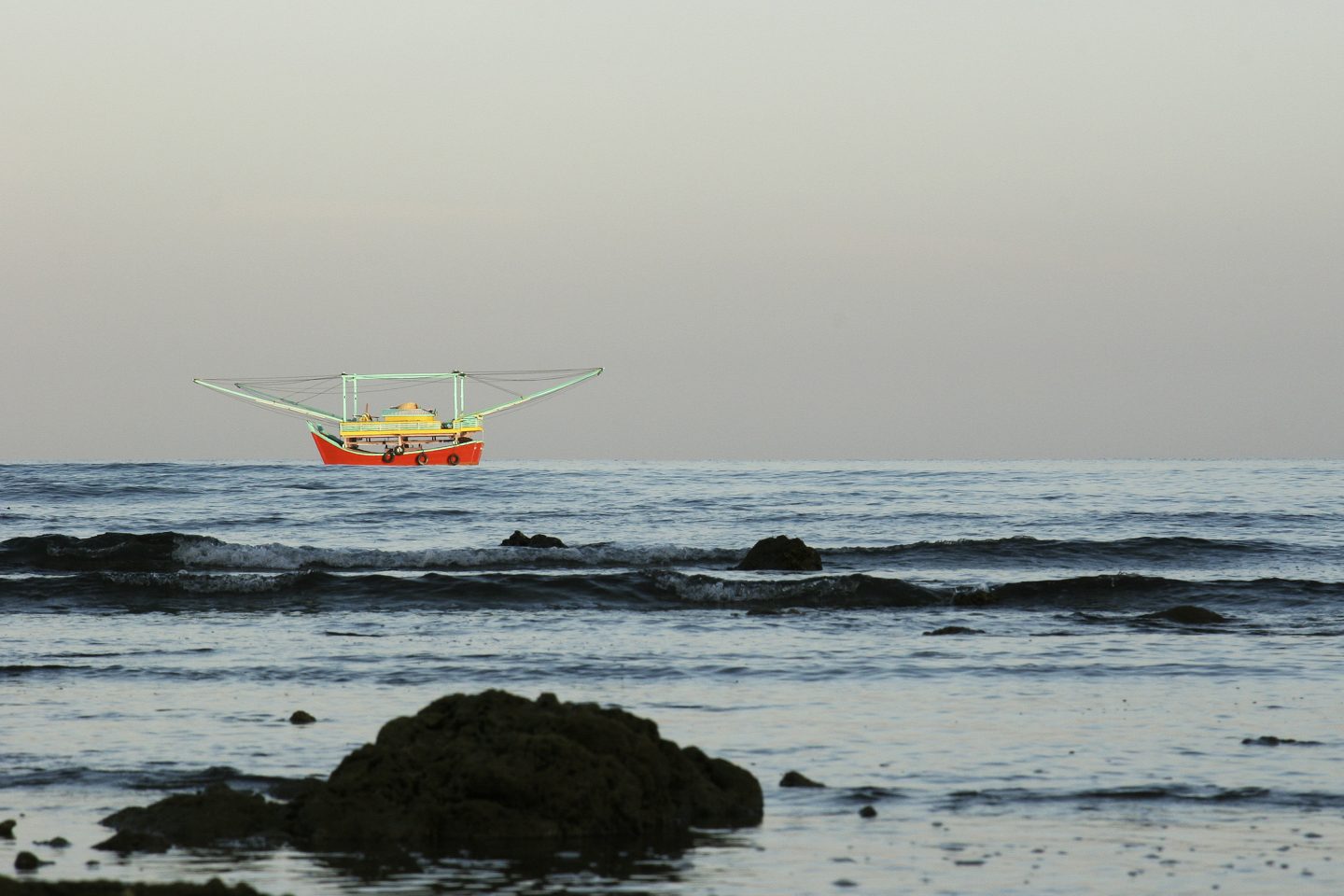
Palongs are mobile fishing kelongs that are towed by boats. They are used by Indonesian fishermen to increase their catch.
Over time, they managed to revitalise the local economy by supporting the all-important fishing industry, providing funds to build fishing rigs called palongs to provide employment for the villagers as fishermen. Preschool and after-class education were also established.
Why are you here?
“Spiritually, there was growing openness to the Gospel as we improved the quality of our relationships. All that takes commitment over a long period. But it helps in moving people from unbelief to openness to the Gospel.
“Through our presence and work, I was often asked, ‘Why are you here? Why do you care so much for us while our own government doesn’t?’ I learned an important lesson – it was through our lives and deeds that were provoking the questions to which the Gospel is the answer!”
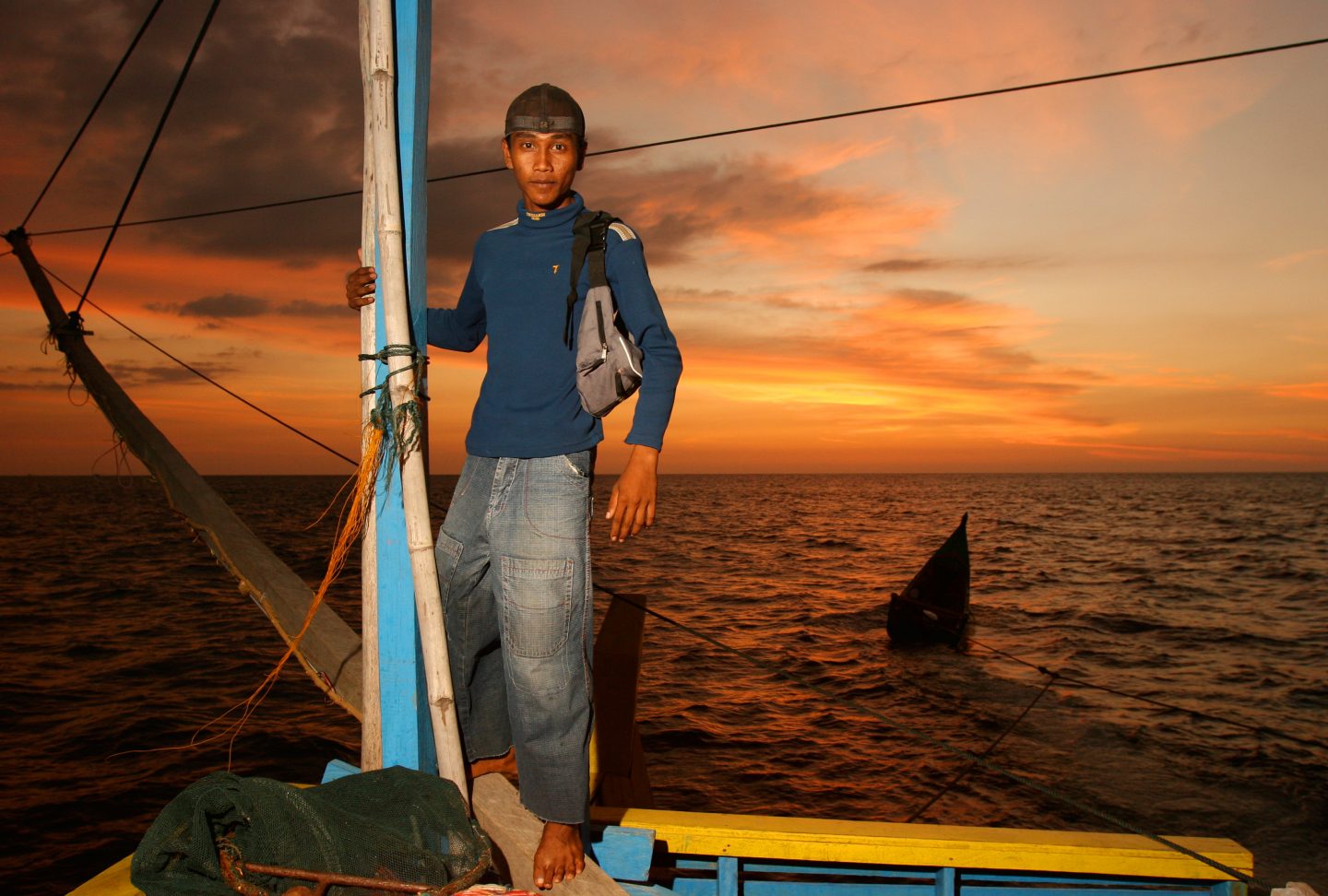
A village fisherman on a palong.
Throughout, Chng was mindful about empowering the locals.
“It was through our lives and deeds that were provoking the question to which the Gospel is the answer.”
They hired a group of Indonesian Bible graduates to help with the rebuilding efforts in 2005. Chng trained and mentored the Indonesians for the work. By 2012, the project was successfully handed over to the locals to manage.
The time spent in Aceh did not only turn around the lives of the fishing community, it also took Chng’s life in another direction.
“It gave me a more holistic view to my understanding of missions. Instead of the unbalanced emphasis on the numerical growth of the church, it gave me a richer understanding of witnessing by word, deed and action as laid out in James 2:14-26.”
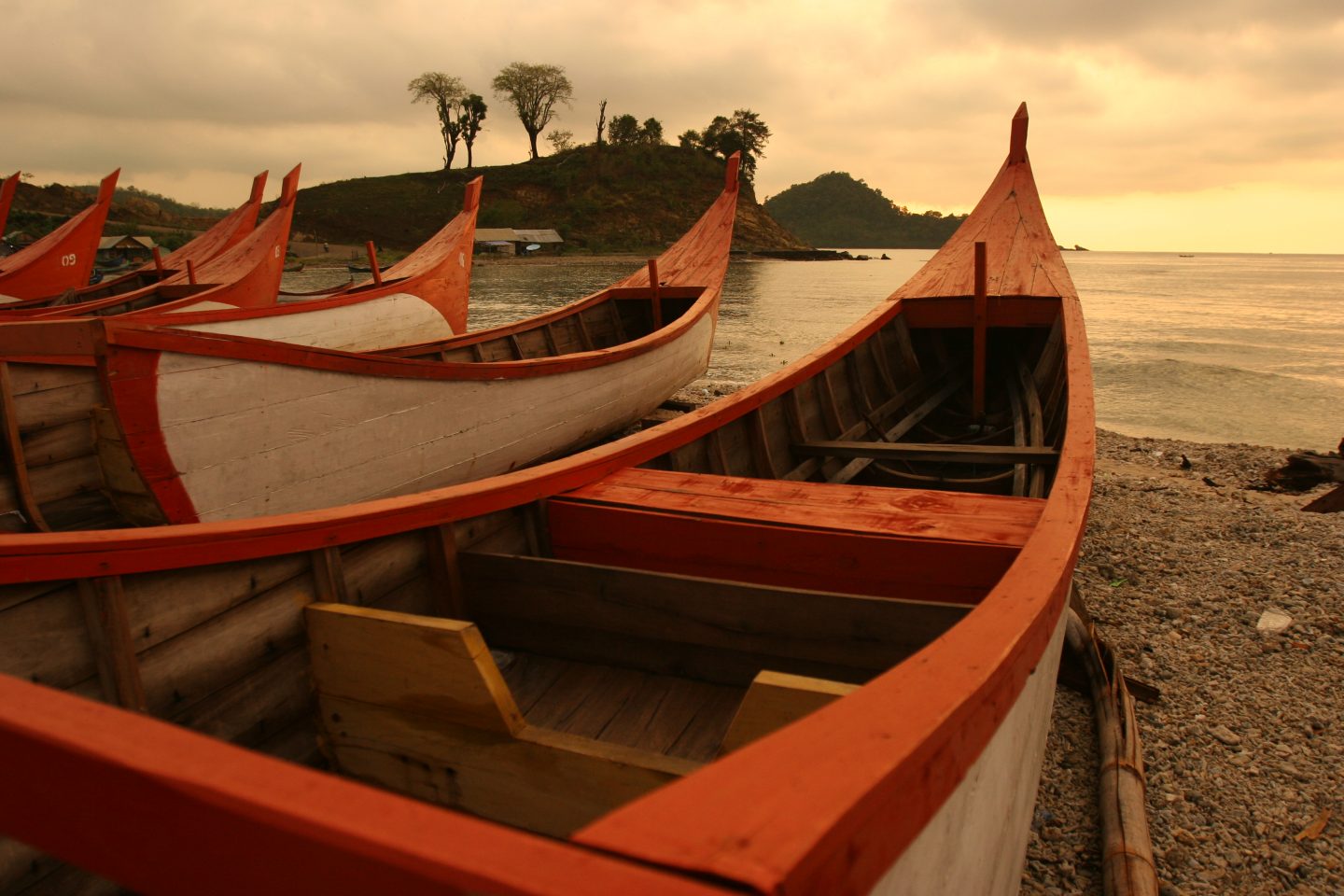
A new fleet of donated boats.
In 2012, Chng’s work in Aceh came to an end. By then an engineering career was out of question.
“After witnessing the love of God changing the lives of the people, I could not go back to what I was doing before.”
For the last six years Chng has been continuing his community development work, this time in a regional role with World Vision International, a global Christian relief, development and advocacy organisation. That hunger to do something for God still remains as he shares about the work he does today.
“We are motivated because we are Christians. The whole understanding of the Kingdom of God, His justice comes to play, because then you will have to think about what the Kingdom of God is all about.”
We are an independent, non-profit organisation that relies on the generosity of our readers, such as yourself, to continue serving the kingdom. Every dollar donated goes directly back into our editorial coverage.
Would you consider partnering with us in our kingdom work by supporting us financially, either as a one-off donation, or a recurring pledge?
Support Salt&Light
